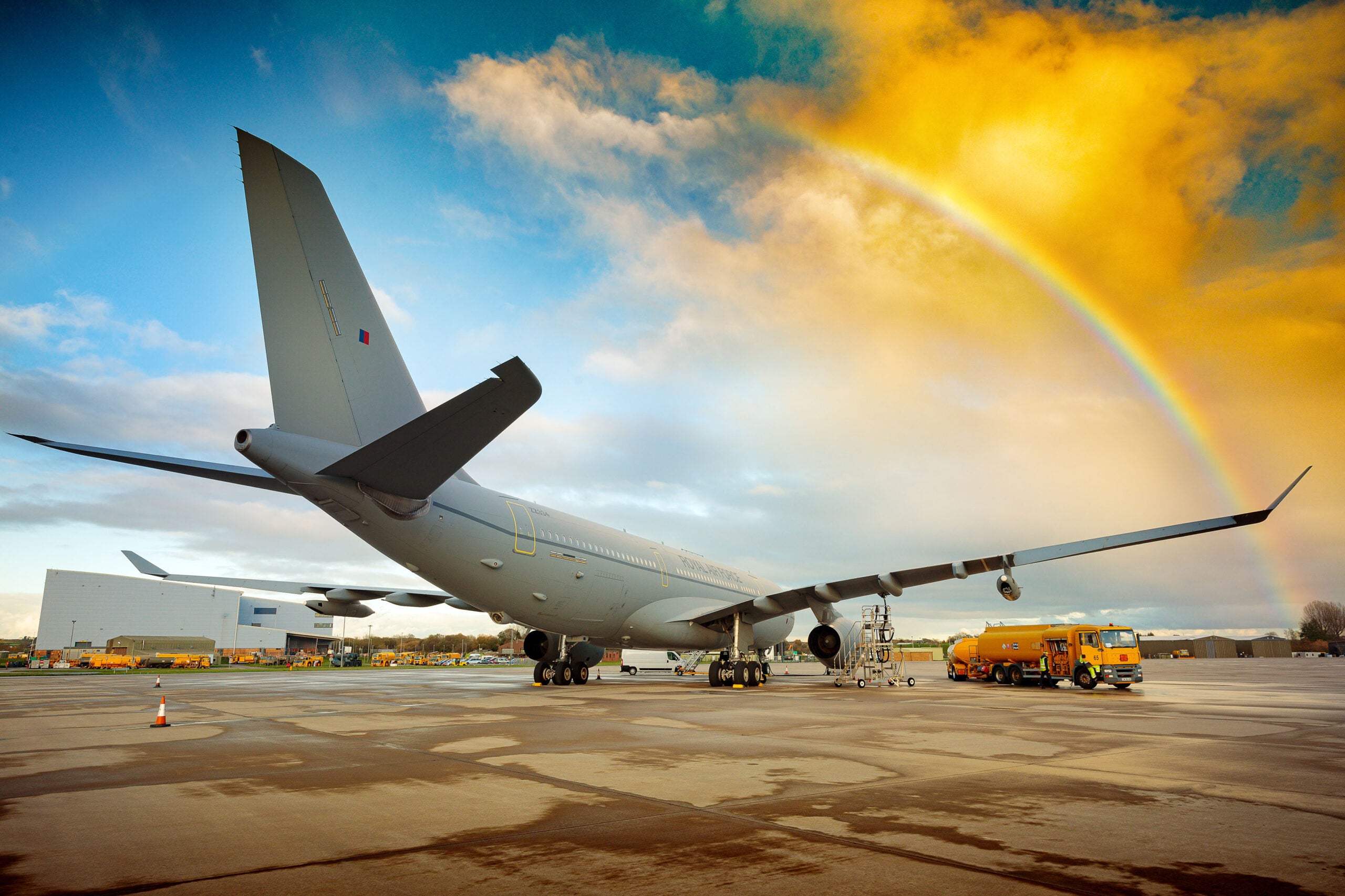
The UK Royal Air Force’s (RAF) Voyager air-to-air refuelling (AAR) tanker aircraft has successfully completed the first 100% sustainable aviation fuel (SAF) flight demonstration.
The flight test was carried out from RAF Brize Norton on 16 November.
It was a joint effort between the UK Ministry of Defence’s (MOD) procurement unit Defence Equipment and Support (DE&S), the RAF along with other industry partners, including Airbus, Rolls-Royce, AirTanker and fuel supplier Air BP.
The 90min test-flight was executed by a combined crew of RAF, Airbus and Rolls-Royce personnel.
This test was a replica of a usual AAR sortie that was conducted by an RAF Voyager, an Airbus A330’s military variant, over the skies of Oxfordshire, UK.
It allowed the participants to demonstrate the future operational capability of the RAF’s aircraft using SAF.
Meanwhile, Airbus’ Defence and Space and Commercial Aircraft divisions were engaged in monitoring and managing the aircraft’s performance both in the air and on the ground to prepare it for the final flight involving both 100% SAF-powered engines.
Work was handled in collaboration with the RAF, Airtanker and Rolls-Royce.
Experimental test pilot and flight captain Jesus Ruiz said: “From the crew perspective, SAF operation was ‘transparent’, meaning that no differences were observed operationally.
“The Test Plan was exhaustive and robust and has allowed us to compare SAF with JET1 culminating in a flight without a single drop of fossil fuel.”
With SAF capability, the RAF can minimise lifecycle carbon emissions generated from its aircraft, simultaneously taking a step towards achieving its Net Zero by 2040 endeavour.
In March, RAF conducted its first successful drone flight using synthetic fuel to support the same Net Zero initiative.



